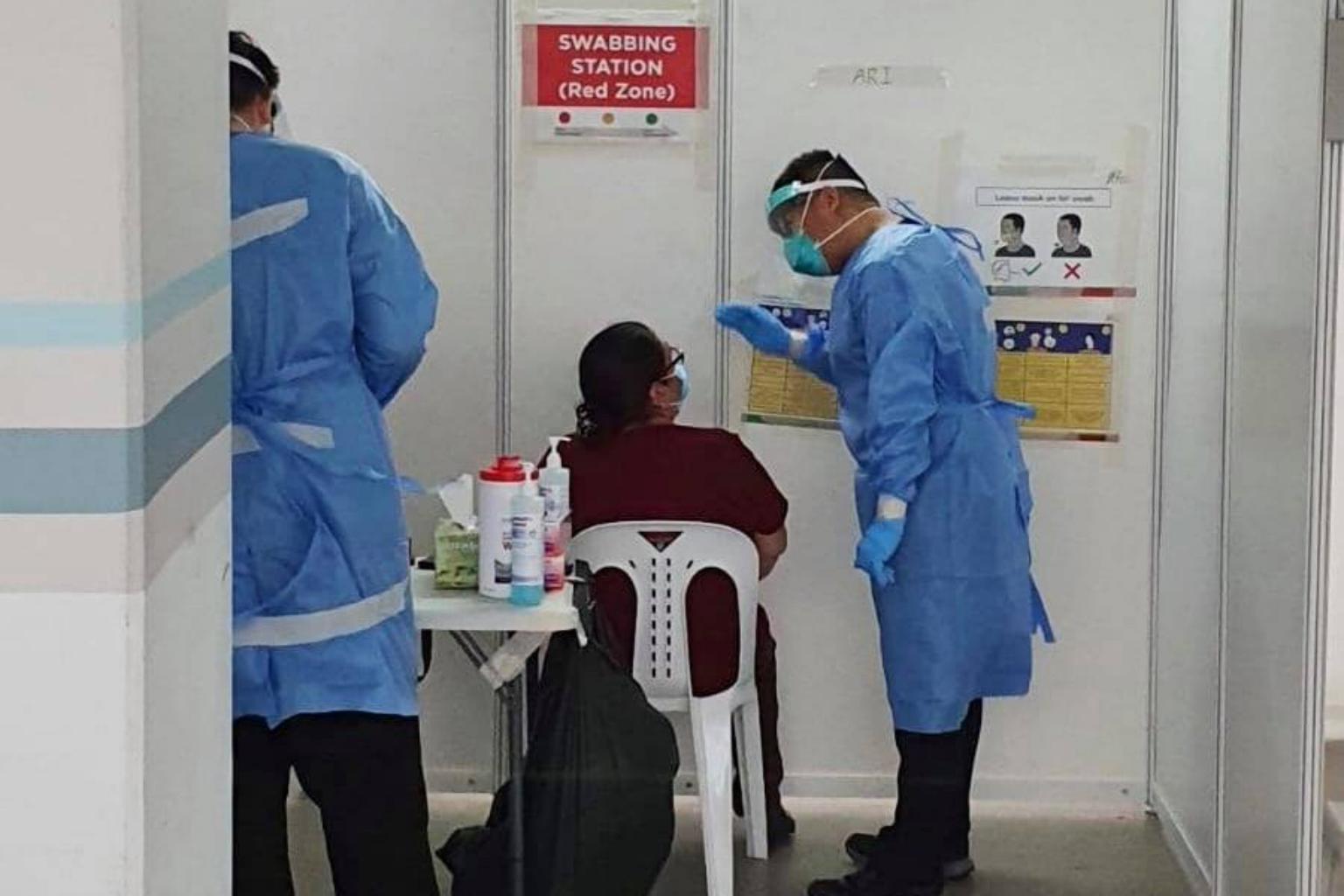Caregivers and social agencies welcome MOH review of Covid-19 protocols for people with special needs
Sign up now: Get ST's newsletters delivered to your inbox

MOH will study the effectiveness of alternative Covid-19 tests that are less intrusive than swab tests (above) for people with special needs.
PHOTO: RAHAYU MAHZAM/FACEBOOK
Toh Ting Wei, Ang Qing
Follow topic:
SINGAPORE - The Ministry of Health (MOH) will improve Covid-19 testing procedures for persons with special needs, in a move welcomed by caregivers and social agencies.
Some caregivers said they were optimistic that this could be a watershed moment for the system to become more inclusive of those with special needs.
Parliamentary Secretary of Health Rahayu Mahzam had said yesterday morning that personnel carrying out these tests will be trained on how to handle persons with special needs.
She noted in a Facebook post that personnel carrying out swab tests "have not been specially trained to deal with persons with special needs".
Hence, MOH has started looking into engaging relevant professionals, as well as volunteers from the National Council of Social Service, who are trained to work with persons with special needs, she added.
MOH will also study the effectiveness of alternative Covid-19 tests that are less intrusive.
In addition, the ministry will improve communications between the agencies involved in the quarantine process to make it smoother for persons with special needs, among other measures.
MOH's review came after accounts by caregivers sparked calls for the authorities to do more to help persons with disabilities.
"We understand (the caregivers') grievance and it is indeed unfortunate that they had to go through such an experience," said Ms Rahayu, referring to two recent cases.
One of them involved Ms Cindy Chee, whose 18-year-old son, Matthew, has autism. He was traumatised after being asked to go through a swab test.
Thanking the authorities for their swift response to her concerns, Ms Chee, 45, said: "I think having a dedicated channel of communication for special needs families to seek help or clarify special circumstances will be helpful too."
The other incident involved special education teacher Amilia Koh, 26, and her 34-year-old brother who struggled for 30 minutes during a swab test.
Ms Koh hopes MOH's review can reassure caregivers that their loved ones can go through Covid-19 protocols safely without putting front-liners at unnecessary risk.
She suggested that swabbers discuss with caregivers how to carry out the swab tests on persons with disabilities.
Special education institutions could also identify some representatives to attend swabber courses, and deploy them to help persons with disabilities when the need arises, she added.
Dr Lim Hong Huay, an epidemiologist and developmental paediatrician who has two children with autism, said awareness training could help front-line workers understand the different special needs and disabilities, so they can come across as empathetic, respectful and sensitive.
Dr Lim, who is the board chair of Caring SG, an initiative for the special needs community, also said caregivers should be allowed to accompany those with disabilities through Covid-19 protocols.
Social service agencies and caregivers also urged MOH to engage caregivers and persons with special needs to improve protocols.
Ms Alina Chua, principal autism consultant and psychologist at Autism Resource Centre (Singapore), said their experiences will help the authorities understand what can be improved to minimise any impact of the protocols on individuals on the autism spectrum.
Ms Sun Meilian, 48, who founded the Friends of ASD Families group and has a son with autism, said it was important to note that there are varying degrees of challenges among different disabilities and within each disability.
"The improved protocols should be tiered to cater to different needs, rather than applied as a broad stroke, so that we won't have to stretch our resources unduly, and to ensure that those who genuinely have high support needs get the most help," she said.
"I hope these episodes have helped the public become more aware that persons with disabilities have different needs which require a different way of handling things, even as we are all trying our best to cooperate in fighting Covid-19."

